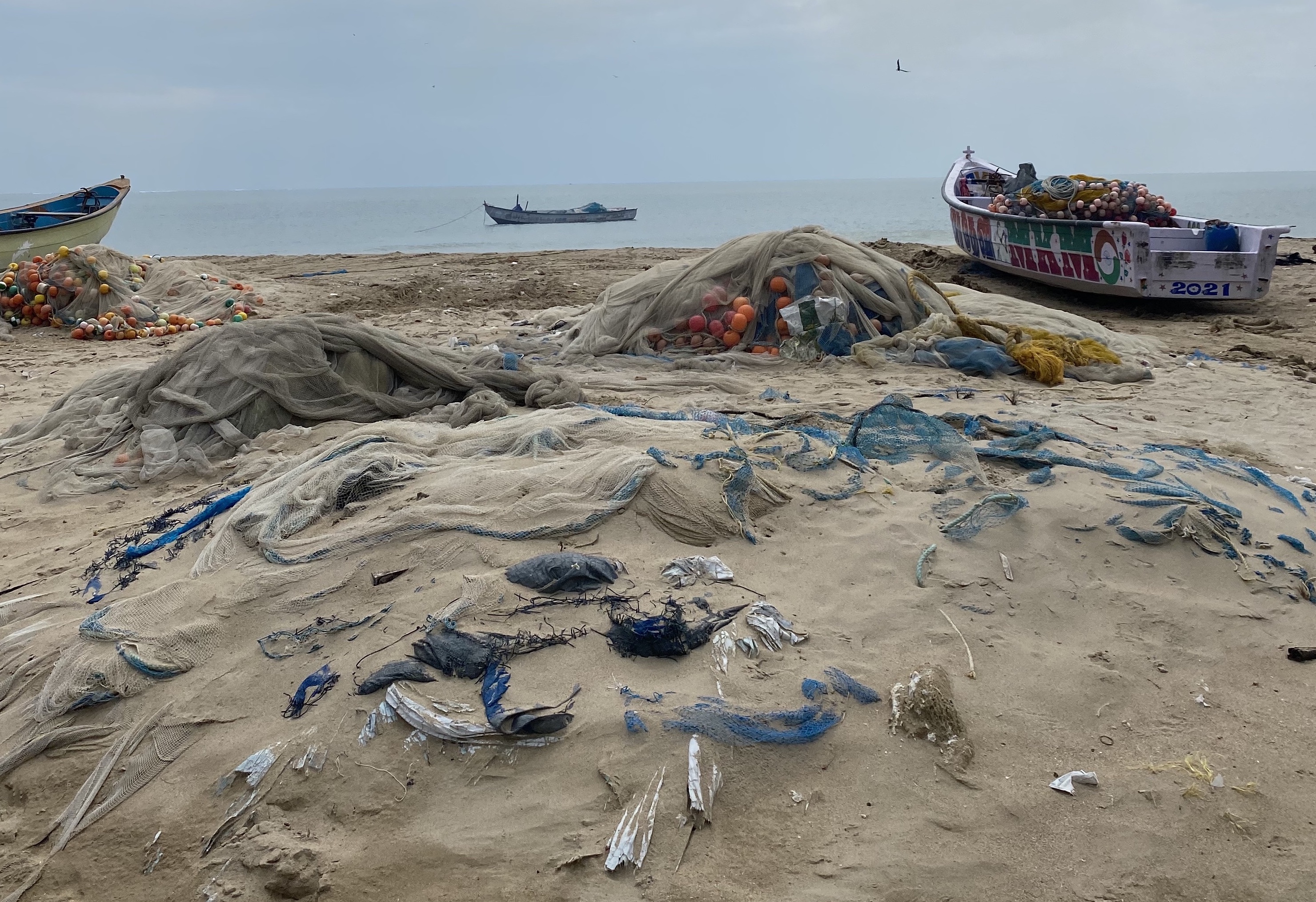The Gulf of Mannar and Palk Bay are areas of high biodiversity and sensitive marine ecosystems, located between the Northwestern and Northern coasts of Sri Lanka and the Southeastern coast of India. These marine areas are under increasing pressure due to high resource exploitation, the use of destructive fishing methods, and pollution — not least plastic pollution stemming from fisheries. Marine litter from fisheries is a major threat to the Gulf of Mannar and Palk Strait marine environments. The situation is already concerning and is expected to grow in severity.
These marine areas are under increasing pressure due to high resource exploitation, the use of destructive fishing methods, and pollution—not least plastic pollution stemming from fisheries.
Marine litter is one of several human-induced stressors, which put pressure on the sensitive marine habitats of the Gulf of Mannar. The region is an important breeding and fishing ground for commercial marine species in India and Sri Lanka — making the issue precarious and critical for both livelihoods along the coasts and the marine environment.
Active involvement and regulatory intervention by public authorities in India and Sri Lanka are critical to successfully tackle marine litter from fisheries in the region.
Developing solutions require cross-sectoral approaches involving close dialogues with the fishing industry (gear suppliers and the fishing community), the waste management sector, and relevant representatives from civil society interest groups. The MARESSOL project is funded by the Norwegian Retailers` Environmental Fund, and carried out by SALT together with our partners in India and Sri Lanka IUCN Sri Lanka, Lanka Environment Fund, and SDMRI (India), aim to collect data on systemic solutions that are verified with the different stakeholders through tailored dialogue processes.
The report published May 2023 from the MARESSOL project provides the reader with a holistic picture of the issue with marine litter from fisheries in the region, including:
The natural values of the geographical region
An overview of the fisheries industry and fishing gear production
The concentration and composition of marine litter in the region stemming from fisheries
Governance and policy on marine litter from fisheries,
Case examples of good practices from around the world to prevent and manage marine litter from fisheries.
Recommended measures and avenues for change
Read the Summary report (PDF) →
Authors: Carl Höjman, Marthe Larsen Haarr, Rui Pires, Guri Hjallen Eriksen, Helene Skjeie Thorstensen, Edward J.K. Patterson, Arjan Rajasuriya, Dinithi Samarathunga, Immaculate K. Jeyasanta, Laju R. L., Jamila Patterson, Terney Pradeep Kumara, Yohan Mahagamage, Ananda Mallawatantri, Shamen Vidanage, Brita Staal
